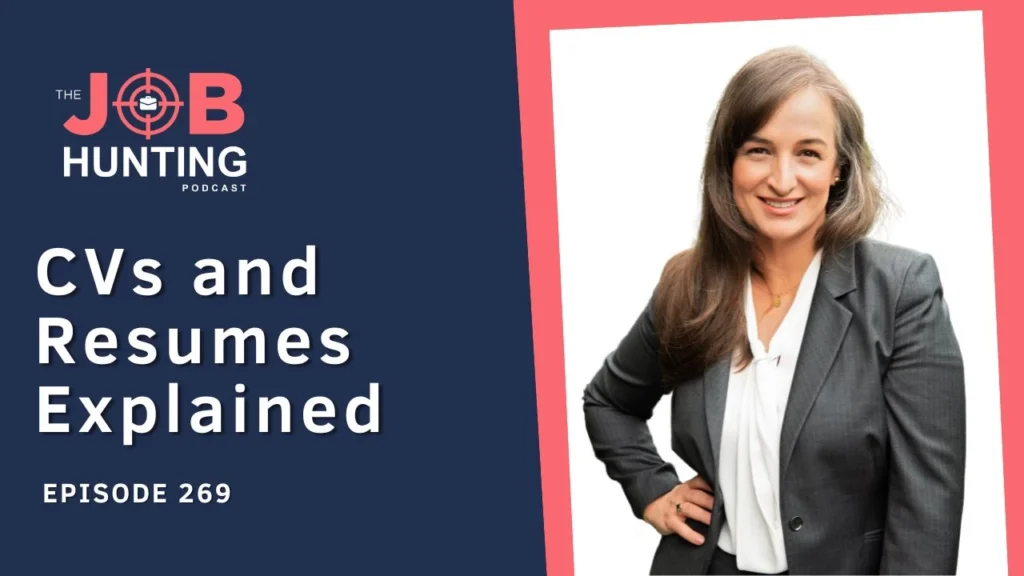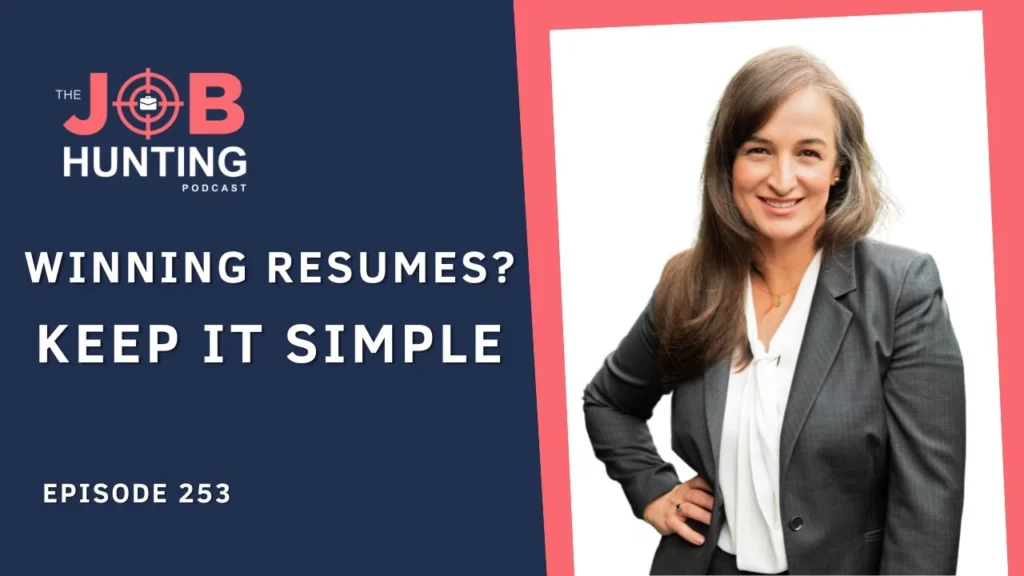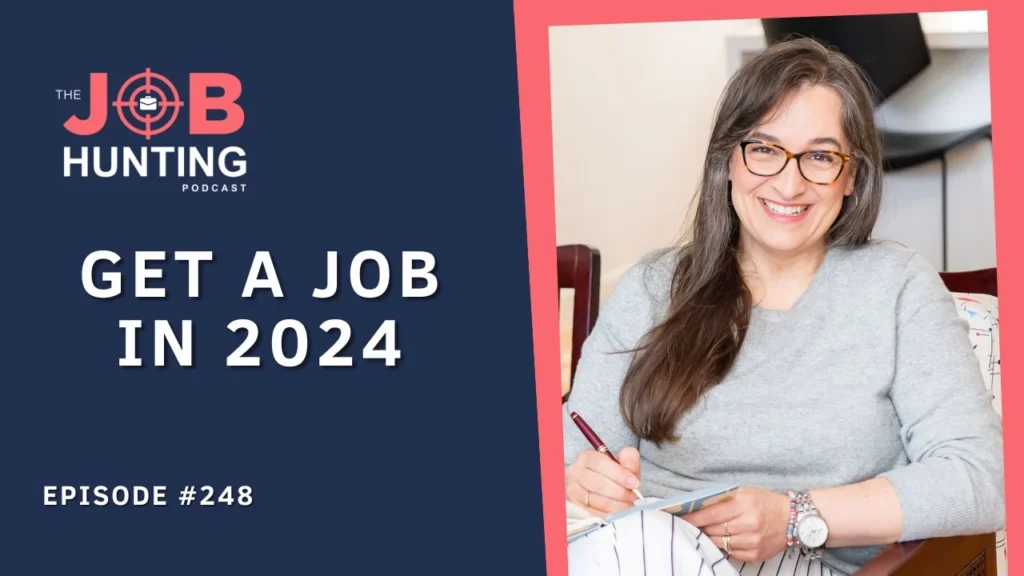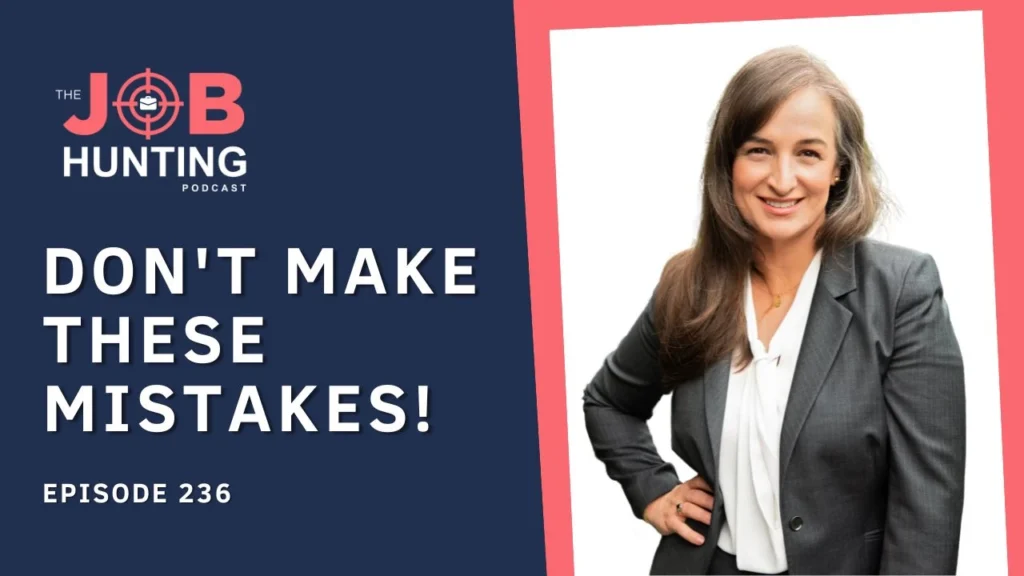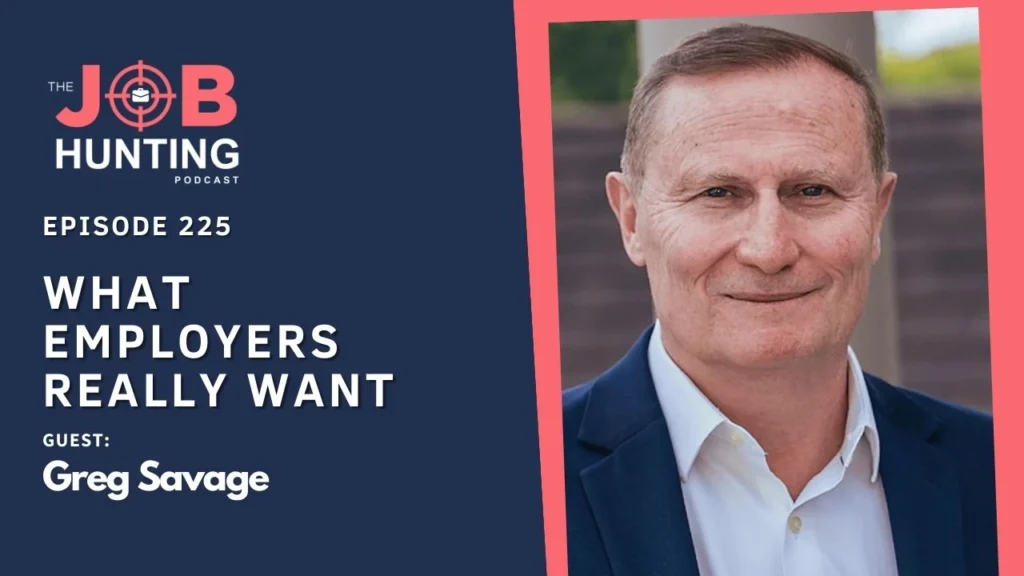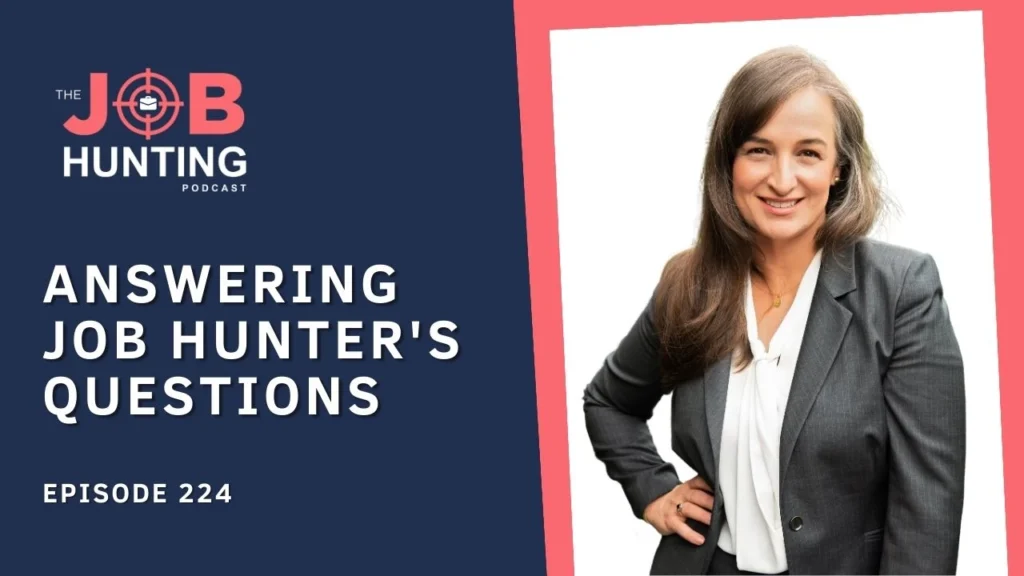Do you ever wonder why there is no reply and constant rejection on your job application? When, you know, in your heart, That you can do the job that you’ve applied for. If this is you, then keep listening this episode is for you. If you have been very lucky at overcoming this first bottleneck of the job application and going into interviews, maybe there’s another episode for you in our catalog. There’s 109 episodes for you to. Look back to, and, you know, you might be bottlenecking at job interviews. That’s fine. Find another episode. This episode is about resumes and CVS. And I want you to listen and get to know the difference between the two, if there is any and how it may be contributing for the fact that you are not being shortlisted for opportunities, right? If after listening to this, you still feel like you need some extra help contact me because this content is an easy for me to deliver. I would love to hear your feedback on how I go about doing this. It’s one that I often avoid because it’s so hard, but I felt like it’s been four years. I need to talk more about resumes. Everybody asks. For me to do their resumes. So let’s talk about it. Okay.
So first thing that I want to address our resumes and CVS two different things. Yes or no. My answer is it depends. See how hard this is for me. It really, truly depends. During the job search process, you are likely to come across this term either CV or resume in the instructions for you to apply for the job. Here in Australia, we use these terms interchangeably. So for us CVS and resumes, I’m in Australia for us it means the same thing, but in other countries they are different and they have distinct characteristics that set them apart. And I’m going to address those in a moment. So, although there is no distinction between the two of them in Australia and in some other countries. It is still important for you to understand the general differences here. So both CV and resume are terms used in job search. You’re right about that in Australia, they are used interchangeably. Outside of Australia distinctions may apply. Now. I have clients all over the world. So for me, you know, I kind of navigate this as they come, depending on the country that my client is based. You need to sort of figure it out, what it means to you, this information that I’m sharing. And take everything with a grain of salt and go and investigate for yourself. So understanding these differences is very crucial. Depending on where you are. And also if you’re interested in applying for jobs overseas, so let’s say you are in Australia and you want to apply for a job in the UK or in the U S the differences even bigger than you need to know these things.
Okay. So when do I use a CV and when do I use a resume? All right. So. CVS and resumes will vary based on location. So they are used interchangeably. The terms are used interchangeably in Australia, in India, and in South Africa, for example, these were the locations that I was able to identify, but you need, I don’t know. I mean over 100 countries listened to this podcast. So you need to investigate where you are. But always verify the instructions that you get on the website and the guidelines for that specific job application. See what terminology they are using? Are they using the word resume or they’re using the word CV? And then you use the same as well. Okay? To express your documentation that you are providing. The employer. Or the recruiter. So when in doubt you reach out to recruiters, to HR professionals, ask them for clarity. This is really important.
But what is a CV? So the, letters CV, they stand for curriculum vitae, curriculum vitae is the Latin two words for course of life. Right? So in countries like in the U S where there is a distinction between CV and resume, a curriculum vitae are more detailed and professional in countries where there isn’t distinction, CV is a more detailed document of professional and academic achievements. It’s longer. It’s more comprehensive than a resume. Things that you would typically include in a CV of course, contact information, professional summary, education, career history, books authored or publications. If you’re an academic awards, recognition, grants, fellowships ,languages, memberships and referees. If you have access to reset or career, you can see a CV template in their "reset your career" is my instant access, short chorus for job seekers. I recommend this course for people that are in a hurry. That need information right away You know, want to invest in their careers at a low investment point. And it’s jam packed with things. So reset your career, there’s a link in the show notes, go check it out. It will have a template there for you to understand what the CV is.
What is a resume. A resume in countries where there is a differential between resume and CV, a resume would be a brief summary of your careers and skills. Okay. So it will also include contact information. Your objective, the work experience, education skills. Additional qualifications awards in such, but it will all be summarized. So this is really important. It’s a shorter version of the CV. So the key difference between them is the length of resume short. CV is long. Now many places on the internet. You will see that resumes should ideally be one page. I disagree. Because when people try to put too much stuff on one page, it looks very squishy and this is not just problematic for the human eyes, trying to read too much. It’s mainly problematic for the bots. Right? So now the chances are your resume will be read by a bot. Before it’s read by a human and bots are not always very good at reading things that are squished up in columns and tables and. formatted to the nth degree. So you want to use a simple word document and just use stabs and funds to format your, resume as much as possible. Even though in the us, for example, where the resumes really short. I am, I am going for a two page resume for my clients to ensure that the bots can read the information correctly and it’s not too squishy. So we are going mostly for two pages these days. But sometimes I can make it look okay on one page too. So again, if you have access to research or career goal, there, go to the resources library. You will see that there is a. Template for a one page. Resume. But know that recently spatially, because of ATS, I’ve been working on making that same template, but just moving into a two page scenario, I think it’s more easily read by bots. Now a CV. Or if you’re hiring Australia or South Africa, or what else did I say? India. UK. Ireland New Zealand. Okay. You can send an application with a. Document we’ll call it CV or resume. That is longer. It does not have to be one page. In fact, if you send a one page document, I think it’s problematic. I’ll give you an example of what I mean. Somebody reached out to me recently, they’ve been applying for roles and not getting through the interviews. They are the ideal candidate for the role.
I know that because I’m a career coach. I do this all day long. So I know when a candidate is ideal versus a candidate that is a dark horse, both of them. Should be shortlisted. Because of diversity and, you know, to give a breadth of. Understanding to the employer on, you know, The quality of the candidates out there and the differences that they bring and the uniqueness and level that. So I have strategies for the ideal candidate that are different from the strategies, from the Dark horse. But when you see an ideal candidate for a job, that’s not shortlisted, you know, for sure that there is a problem with their application. Now this candidate did a great job with their cover letters and their resume. They’re based in Australia. However, they did a one page resume in a country where people do expect to see at least two pages, if not three. So they were trying too hard to squish, not giving enough detail and not speaking to the audience of an Australian recruiter or an Australian HR professional, looking at that resume. And they were missing out on providing. Important information. That the employer and the recruited would expect to see in a two or three page resume by trying to summarize too much on a one page. So if that candidate was based in the U S they would probably have gone through. But because they were based in Australia. They weren’t going through and they were missing out on providing details and, you know, show them how to do it and are now working together. Through consultations to improve His conversion. Okay. So, this is why it’s important to know. So the length is important to don’t write sometimes doing a one page or a two page in the country that expects. Three pages. It’s not a good idea. So CVS are often longer. If you are in America, in the us and the job application requires a CV, not a resume, you’re probably an academic or research professional. So in countries like the U S. Academics and researches and thought leaders, people that working think tanks, for example, even if they’re like a hybrid professional. There is a friend of mine who I’ve interviewed for the podcast. Catherine Lopez. She calls herself A recovering academic. I love that. So she most likely has a curriculum vitae. She worked in the U S for example, she’s now based in Australia. And for jobs either in the academic environment or just outside the academic environment, as a researcher in a corporation, for example, she could be submitting a CV, which would be a longer document, somewhat cadet mix that I know friend of mine, who I had been texting this morning, for example, her CV is probably 14 pages long because of all of the publications that she’s done over the years. And the expectations that people have of including those publications with. Brief and, you know, listing all the authors, et cetera, et cetera. So in academia, CVS can be very long. As an example, my personal CV is five pages long. I’m not applying to any jobs. If I were to be using my CV for anything, I would probably try to reduce it to four. It’s just that I haven’t worked on it. So at the moment, my CV is four or five pages long just to give you an idea. Okay. And if I needed it in a hurry and I had to send it in Australia, like let’s say somebody says, oh, Renata, I, want to get you to do outplacement for my company. I’ve been asked three times this month. Not a good sign. Can you please send me your CV quickly? I’m like, okay. Here’s my CV. Right. But if I was applying for a job. I would probably try to reduce it to three or four pages if I could. You will find that on the website. Some people say, oh, CV, there are static documents. They’re less tailored and resumes are more flexible and more tailored. I disagree with that position. Okay. My position on this is that when you’re applying for a job, Either with a CV or resume. You should always tailor it to the specific job application. Right. Once you have a template, once you know what you’re doing, and the reason why a CV or resume needs to be written in a specific format. It will be easier for you to tailor. Trust me on this. It’s very easy to tailor a resume in a CV. Once you understand why you’re actually writing this and who is reading it? Okay. So I don’t believe it’s true that his CV is a static document. I believe that both of them. Can be tailored. And I do that work with my clients for both CVS and resumes.
Then there’s the thing about emphasis, the CV focus on extensive skills, qualifications, and achievements, whereas resumes more. Broad, you know Colver skills, but also includes hobbies and interests. I’ve been reading this on the internet and I also disagree my position on this is that they both should focus on skills, qualifications, and achievements. And there’s no need for hobbies or interests anywhere. I never include hobbies and interests in my clients. Resumes. And that is because I believe that that can be a source of bias. I’ll give you an ex an example. Let’s say. You are a golf player and you’re hiring. A junior staff member and that junior candidate writes on their resume that their hobby is to play golf. You could be biased toward shortlisting that candidate. And I do not think that that’s right. Okay. I also believe that some people have hobbies that they don’t want to disclose. And they shouldn’t. And I remember when I was a mother of two. A mature age, student applying for graduate roles and being asked, do I have a hobby? And I didn’t have any why? Because I was raising my kids. I don’t have time for hobbies. And, I felt bad. Like I had, I can’t leave that box empty in a online job application. I just, or, you know, it’s just weird. And I don’t like it and I never included and it makes zero difference. My clients are very successful with their conversion from job application to. To interview. So trust me on this and work with me to change that. That practice, because I don’t think it’s helpful. So, yeah, so that’s my rant about. Emphasis. and hobbies.
All right. Now, why is it. Regardless if it’s a CV or resume, why is it so hard to get it right? Right.
Now, let me tell you a story. Every day, every day, people reach out to me asking me to do their resumes. Can you do my resume for me? And then I have a standard reply because I do this so often. And I get back to them and I explained them, what would it would mean to work with me to do the resume? And then 99% of the time, I never hear back. Hi, because people expect a miracle from, from me and I can’t deliver on that. I can’t just look at your LinkedIn profile and write you a resume. It’s not how it works. Right? The pre-work is missing. A resume is kind of the middle of the sandwich. You need a baseline. You need the foundation of your career in order for a career coach or yourself. To do. Good resume or a good CV for you. Many times when people come to me for consultations and they send me their resumes. I find that the resume is overwritten. It’s over explained it’s over complicated. And it’s, if you think about who is reading it. It’s hard to read. There’s too much information there. And if you think about how that information translate to a specific job that you’re applying for it doesn’t. Okay. So I think it needs to include more thought and consideration. And the pre-work that as a career coach, I work with my clients when they sign up with me for four. You know, to work with me for a few months, for example. It pays off in spades for the rest of your career. It will be so much easier for you to know how to apply for jobs. If you do that, pre-work. And also you don’t need to include everything in your resume. Resumes are not a library of everything you’ve ever done in your life. That’s the tailoring that I’ve explained to you before.
So the other thing that I want to express here is that. Your resume is a reflection of you as a professional, you know, it’s your career. Plans level of seniority. Salary range, professional interests. So the way that it looks, the way that you write, even the action verbs that you choose for your dot points to describe your achievements, reflect all of what I’ve just said. Okay. And the standing of your strengths and the standing of your transferable skills of your leadership style. What you can do best for an organization that needs to be translated in the resume or the CV. But most importantly, and this is the thing that people miss out the most when developing their resumes, his understanding of the role that they’re applying for. Even if you’re applying for similar roles, let’s say your chief financial officer or your financial controller, or if you’re marketing managers. Is even harder. If you’re a marketing manager in one organization. And you’re applying for a marketing manager role in another organization. Is this row still going to be slightly different. How many people will work for you? Some financial controllers are marketing managers in some organizations might be managing a team of 10 or five or zero. And in other companies, they will be managing many more people. They will would be reporting to two different managers. A completely different structure. They will have more counterparts or colleagues or either. Cross-functional relationships or zero cross-functional relationships. So you really need to tailor. Your resume to address that it, that application that you’re doing. So that the selection panel thinks that. You are the ideal candidate, right? You need to translate that well for them. So that’s also something I wanted to, to tell you today. What else?
What do I believe are the common mistakes and misconceptions regarding the formatting? Right. First of all, is this idea that a resume needs to be one page. Okay. Even if you are in the U S. And you’re submitting a short resume and not a longer CV. Believing it needs to be. One page can be detrimental to your chances of converting to a job interview because you might be squishing everything. And adding too many tables and columns that will make it hard, not only for the human eye, but most importantly, for the software at EDS, trying to read your resume. All the things that I have seen that I blows my mind that it’s still happening is people adding colors are banners, you know? I’ve seen resumes that have bright pink, vertical banners. I’ve seen resumes that are lilac or purple or red. No colors, no images. You know when I say no images, I know that there are some countries where including a photo on your resume or your CV is still. Part of norm. So again, make sure that you do your research. But when I say images here, I’m thinking about. One client in particular, but I’ve seen the several times. Instead of saying, let’s say that you worked for Coca-Cola. I have seen people. Copy paste the logo, the Coca-Cola logo into their resume. And not ride Coca-Cola. Right. So if you apply for an organization that has a software reading your application prior to a human reading your application, they will not be a cop that you worked for. Coca-Cola. So who do not. Substitute words for images. In fact, do not have images at all. ATS systems do not like images. They don’t like anything, fancy banners and colors and tables. And. And and so forth. So. I say this, I think. Every other episode, I’ve been telling you this and still people reach out to me. With. With resumes and CVS with, those things. In fact, I have a client sign up with me though. He booked a consultation. We reviewed his. His CV. And removed all the columns and everything we’ve edited only with tabs and fonts. And he submitted it and got through for the first time in over six months, it was the first time he got through to a a job interview and then every single job interview. Every single application after that he got through. And he decided to then sign up with me for three months of private coaching. To then overcome the next The next hurdles, which are, you know, being good at job interviewing and relating to, to recruiters and so forth. So. Those are other issues in the selection process that we can address in different episodes. But here let’s talk about resumes and CVS, right? So. Yeah. So that is a really common. Misconception is to do with the formatting. The other misconception is to think that the resume or CV. Is a one document that fits all purposes. It is not. And I know that this may sound really tiring for you because you work full-time, you have kids and you’re busy. You have other things to do. And here I am telling you, you need to tailor. Your resume every single time you apply for a job. It’s more about understanding how the reader reads your resume. And how it can be templated in a way that makes it easy for you to tailor. And again, if you access reset your career, you will learn these things. You don’t have to sign up for coaching with me for three months. You can get a lot of educate yourself and get a lot of information from, from that short course, I will link it below, as I said, as I said, so you can check the episode, show notes. And. Especially if you are. Changing. Careers or changing sectors or industry within the same career. Last night I did a. I was on a panel for CPA Australia. And there was a question about this. You know, how do I transition from one. Sector to another one industry to another. How do I show my transferable skills? And you can do that through understanding how the reader reads your resume. It’s it’s, it’s a little bit trickier than staying within the same career or the same industry. And it needs more self reflection and that pre-work from you. To allow the reader to get you into see you. As a great candidate for the position.
Now the other thing that I think people sometimes forget to do is understand the essential components of either a CV or resume. One thing that I often find is missing. And personally, I also remember not liking to write it is the professional summary at the top. Okay. So you should have your name then personal details so that the person can contact you.
Then you need to have a professional summary. And just recently again, I worked with a client at booked a consultation with me. And they did not have a professional summary in this. Makes it so much easier for the reader to get you. And it also is like, A great narrative that you can include specific keywords or paraphrase things from the job application. To position you as a great candidate for the role. So that is often missing. I also have another pet peeve, which is when people add the half competencies. Right, right. After the summary. And they list all the keywords that they’re competent in now. I don’t think recruiters like that. You know, the recruiters that I know do not like. A laundry list of keywords on the first page or last page. Of someone’s resume or CV. It means nothing to them. It means to them that you copy pasted it from somewhere and you’ve just added there. So in my template that I use with my clients, it’s available inside reset. As I said, we expand with a sentence for each of your key competencies, and this allows you. To showcase that you not only know that that keyword is important in your resume, but you have used it. In your profession, in your background, in previous roles that you’ve had, and you, you understand what it means, and you can show maybe some metrics give it some context, some scale and scope of experience. So that is really important. Then there is work experience qualifications. And guess what? You’ve heard this from me before. If you’re a longtime listener, I like to have referees listed in resumes and CVS. Not with their contact details. Mind you? No, no, no contact details needed, but just their names. If you are, imagine if you are a recruiter and you’re looking at someone’s resume or a CV and they list to great referees that, you know, down the track, if you decide to shortlist that candidate, you know, you can call them. It saves you time. Oh, referee checking is really annoying for recruiters, right? It’s. It sometimes can cause problems. If you have done your homework and you have already identify two great, maybe former managers or colleagues that you’ve worked with in the past. They can really help. Shortlist you for the next stage of the process, believe me. Hobbies and interests. I’m not a big fan. I do not included. check it out to, depending on where you are in the world. It could be expected, but I’ve already explained to you why. I’m not a big fan. And that is really important to understand those essential components, to do your research wherever you are in the world, find out how, how recruiters expect to see your resume. Don’t just Google it and get an us version of a resume. And the other thing too, is this chat to beauty is great. And you know, I’m a big fan cause you’ve been listening to my podcast. I’ve interviewed Ted to BT. I will put a link in the episode, show notes for you. I have a masterclass and a workbook that you can download with prompts. All of that is great, but Chad tibitty is American. If you asked Chet to bit here to write you a resume. It will write you on American style resume. That’s probably too short for you. If you leave. For example, in Australia or the UK. Okay. So think about that and, and expand. And learn how to prompt chat TBT. to work for you. Tend to be T also writes for letter sized. Pages and in Australia we use a four. Again, you have to remember that chat to be to your rights in American English, not in UK, English, or Australian English. So again, you have to remember that.
And these are just examples. You could be somewhere else in the world. You’ll have to adapt. If you are in a very different country, please let me know. Like I see you on my statistics. And I’m like, Ooh. This listening to me in. Nicaragua. Like I’m interested. Okay. So please let me know. Send me a message. I’d love to hear from you. The other thing that I wanted to say is this. Even if you are in the U S I know most of my listeners are in the U S. And all you need to apply for your jobs is a resume. It will be a very good thing for you. To do a curriculum. CV, PLI. And this is something that I only just realized. So thank you to my client who is based on the Pacific coast. And we had a meeting a couple of weeks ago. And I’m like, yes, she is right. Doing a CV for her is actually a great idea. why? Because if you have a CV with more detailed information and you are good at using chat to BT. You can prompt chat to be T to rewrite your resume in different ways for different jobs. If you know how to prompt it. Well, if you’ve downloaded my workbook, And you would have that CV there and it will prompt and give chat to be team more information about each of your roles so that it can be, can choose to things that are most likely to. Align you with the opportunity that you’re applying for. I hope you get what I mean, if you don’t send me a message, but I think that that was a good idea. And I’ll probably be doing that for all of my clients that are. Based in America or obese then in countries where one or two page resume is, is the standard. I have clients. All over the world, like I said before, and I need to sort of investigate things all the time for them.
So. The final thing that I wanted to say to you is this. It’s important to write a resume or CV for the reader, not for yourself. And this is the biggest problem when you send your resume to be written out by, by resume writers out there. Okay. Some of them do a great job. I remember I once signed a client. Her testimony was even on my website, I just looked and she came with a resume that had been written for her. And she worked with me for six months. And we did. You know, some interesting work together on both applying for roles and developing her side hustle and executive coaching and all of that. But she did not need my help getting interviews. Let me tell you that because it was well-written. And even though it was not in the format that I use for my clients, I don’t have big ego, you know, I’m happy to keep the, the winning team the way it is. Right. So. It’s winning. I’m not going to change this. You know, you have the template here, maybe in the future. If it doesn’t work, as you develop your career and you advance and. You achieve different levels. It may be that you need a different format, but right now it’s getting the interviews for the roles that you want. So let’s not mess it up. It was well-written and I really liked the format, even though it wasn’t my style. That is really the exception, everyone. Most of the time, people come to me with resumes that they’ve, they’ve paid for. And they are not getting interviews. And they don’t know why they’ve already spent money on this. Why is it. not working and it’s because. A it’s not well written. They don’t understand you. They didn’t spend a lot of time with you to understand what you want to achieve in the sort of roles that you’re applying for. And it’s written for you. It looks pretty to you. You are the client. Right. So when somebody works with me, I’m thinking, not of you, I’m thinking of the employer, the recruiter, the person that will be reading your your resume. They are our clients in our partnership. When I am coaching you, we’re thinking that the recruiter or the employer is the client for that resume. Okay. And your resume’s very much like a box of cereal. You go to the aisle in the supermarket and there is a lot of cereals there and you need to choose one. So we need to make sure we, we think like that youth, we think like the reader or like the shop or the buyer. Okay. So there’s a failure there to understand that you are applying for that specific role. Speaking to a specific type of employer or recruiter. And we need to sort of work on how they want to read a resume and how they think an IDO candidate or a great dark horse resume looks like. Recruiters also have a problem with Incredible. Demands on them, right? First of all, job candidates are not the recruiters clients. The client is the employer. Time for them is money. They often have many demands on them. They have they’re short for time. They’re short on resources, shortened budget. Their software is, you know, may not be the best that they probably know this, but what can you do? There are lots of constraints in the way that they work. And credible. Load of work for them to do. They have many candidates to consider. So why are you special? Your resume or CV will need to pop. It’s a tedious process for you. I understand for them, it is as well. It’s very repetitive, so it needs to pop, it needs to be something that makes them stop and read. Right. It’s important for recruiters and employers. That your resume stands out right? So think about that. And I hope that all of this information that I’ve downloaded on you today, as we celebrate four years, Of this podcast isn’t too overwhelming. I have a feeling. It may be, let me know if you see posts on social media about this episode, let me know what you thought, because. I have been keeping these notes for a while and not really knowing how to express all of this to you, but I hope that I’ve tried my best. I’ve done the best I could. And look. At the end of the day, you can always reach out to me. So couple of things that you can do, there are other episodes that you can listen to and I’m going to list some of them here. The chat to BT two episodes that I have done. Episode 2 0 3 it’s about executive resumes. Have a look at that episode 1, 6, 6, also have a look at that. What else you can do? You can subscribe to my newsletter and I often give special advice to people that are subscribed to my newsletter. Plus you will always have access to the latest episode of the podcast. So that’s probably a good idea. You can unsubscribe if you don’t need it, but if you’re planning to have a cohort, a career ahead of you, 10, 20 years ahead, maybe. A good idea to keep subscribed just in case.


